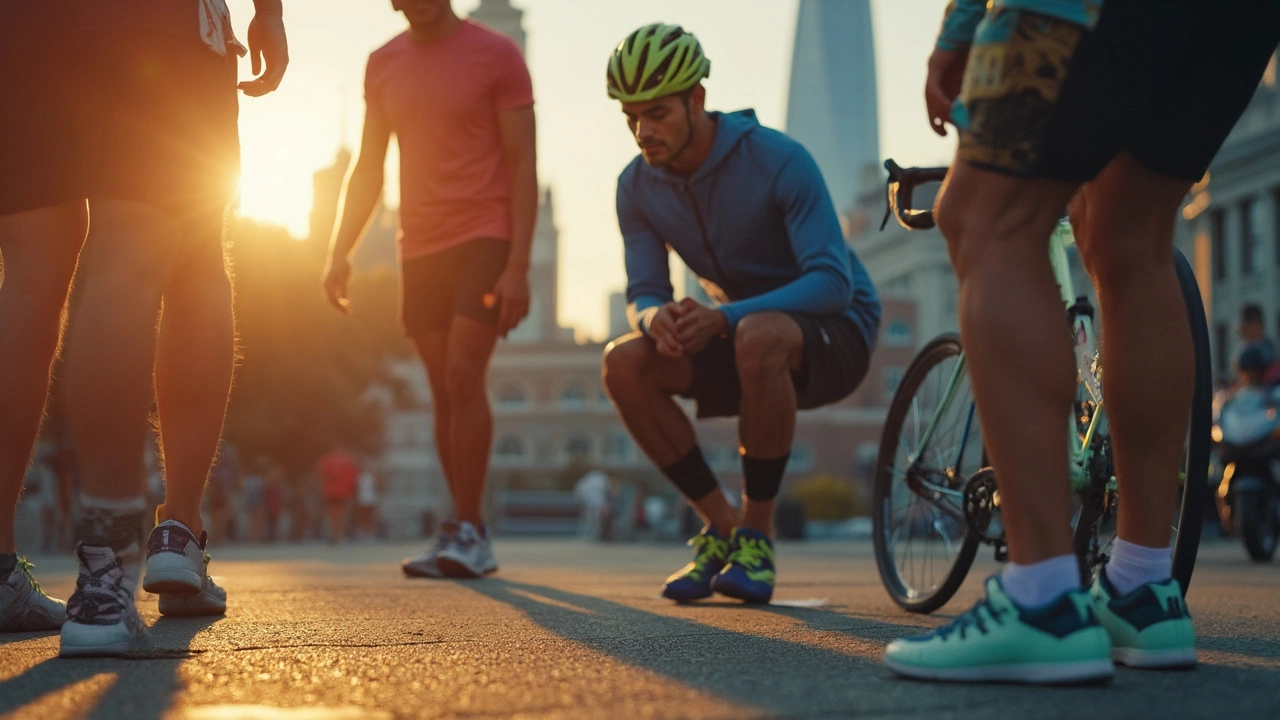Athlete Needs: The Real‑World Checklist for Better Performance
Ever wonder what separates a good athlete from a great one? It’s not just raw talent – it’s having the right gear, a solid plan, and the basics covered day in, day out. Below is a straight‑forward guide that hits the most important needs for anyone serious about sports, whether you’re hitting the gym, the field, or the track.
Gear That Actually Helps
Good equipment isn’t a luxury; it’s a safety net. A well‑fitted shoe can stop a knee injury before it starts. If you’re a runner, look for shoes with responsive cushioning and a snug heel lock. For cyclists, a bike that matches your body geometry makes long rides feel smoother and reduces strain on your back. And if you lift weights, invest in quality gloves and wrist straps – they protect your hands and let you focus on the lift rather than worrying about blisters.
Don’t forget the little things: a water bottle that stays cold, a breathable shirt that wicks sweat, and a solid pair of socks that prevent friction. These details add up, and they’re cheap enough to upgrade without breaking the bank.
Training Hacks You Can Use Today
Most athletes think longer workouts equal better results. That’s a myth. Real progress comes from focused, efficient sessions. Try the 2‑hour rule: if you’re in the gym more than two hours, you’re probably overtraining. Instead, split your week into short, high‑intensity bursts. A 45‑minute strength day, a 30‑minute cardio sprint, and a dedicated mobility session keep you sharp without burning out.
Core work is another non‑negotiable. A flat stomach isn’t just for looks – a strong core stabilises every movement, from squats to sprints. Incorporate planks, Russian twists, and bicycle crunches three times a week and you’ll notice better posture and more power in your lifts.
If you’re chasing specific goals, like shedding belly fat, combine cardio bursts with targeted abdominal circuits. The key is consistency, not crazy fad diets. Aim for a sustainable calorie deficit and keep protein intake around 1.6‑2.2 g per kilogram of body weight to protect muscle while you lose weight.
Recovery is where the magic happens. Sleep at least 7‑8 hours, stretch after every session, and use foam rollers or massage guns to keep fascia loose. A quick 10‑minute cool‑down with light jogging and static stretches can cut soreness in half.
Nutrition doesn’t have to be complicated. Focus on whole foods: lean proteins, complex carbs, healthy fats, and plenty of fruit and veg. Hydration matters – aim for 2‑3 liters of water daily, more if you’re sweating heavily. For performance boosts, consider a simple pre‑workout snack like a banana with nut butter; it gives you quick carbs and steady energy.
Finally, mental prep counts. Set clear, achievable goals each week and track them. Whether you’re logging reps, miles, or personal bests, seeing progress keeps motivation high. If you hit a slump, take a short mental break – a walk, a podcast, or a quick meditation can reset your mindset.
Bottom line: great athletes cover the basics every day. Right gear, smart training, solid nutrition, proper recovery, and a focused mind form the foundation of success. Start with one tweak, stick to it for a month, then add the next. Before you know it, you’ll feel stronger, faster, and more confident on and off the field.
Athlete Needs: Top 2 Essentials for Peak Sports Performance

What do athletes really need most? This article spotlights the two absolute essentials for anyone looking to unlock their athletic potential, all through the lens of the right equipment. Dive into why smart gear choices and proper recovery tools can make or break performance. Get actionable tips and eye-opening facts to help you level up—whether you're training for your first 5K or aiming for a podium spot. Perfect for beginners, pros, and everyone in between who wants to avoid wasted effort and injury.
